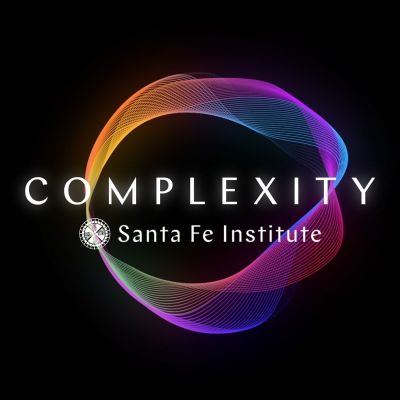Are there universal laws of life and can we find them? Is there a physics of society, of ecology, of evolution? Join us for six episodes of thought-provoking insights on the physics of life and its profound implications on our understanding of the universe. In this season of the Santa Fe Institute’s Complexity podcast’s relaunch, we talk to researchers who have been exploring these questions and more through the lens of complexity science. Subscribe now and be part of the exploration!
https://complexity.simplecast.com
episode 39: Fractal Conflicts & Swing Voters with Eddie Lee
Since the 1940s, scientists have puzzled over a curious finding: armed conflict data reveals that human battles obey a power-law distribution, like avalanches and epidemics. Just like the fractal surfaces of mountains and cauliflowers, the shape of violence looks the same at any level of magnification. Beyond the particulars of why we fight, this pattern suggests a deep hidden order in the physical laws governing society. And, digging into new analyses of data from both armed conflicts and voting patterns, complex systems researchers have started to identify the so-called “pivotal components” — the straw that breaks the camel’s back, the spark that sets a forest fire, the influential (but not always famous) figures that shape history. Can science find a universal theory that predicts the size of conflicts from their initial conditions, or identifies key players whose “knobs” turn society in one direction or another?
Welcome to COMPLEXITY, the official podcast of the Santa Fe Institute. I’m your host, Michael Garfield, and each week we’ll bring you with us for far-ranging conversations with our worldwide network of rigorous researchers developing new frameworks to explain the deepest mysteries of the universe.
This week’s guest is SFI Program Postdoctoral Fellow Eddie Lee, whose work into “conflict avalanches” and swing voters gives a glimpse of the mysterious forces that determine why we fight — and how we may be able to prevent the next conflagration. In this episode, we talk about armed conflict as a fractal and a form of computation, swing voters in the justice system and influencers in pop culture, and what these studies have to say about the deep constraints that guide the currents of society.
Just a note that this will be our last episode before a short summer break, to give our scientists uninterrupted time to work on a torrent of new research. We have some exciting episodes scheduled for our return in mid-August…in the meantime, please be sure to subscribe to Complexity Podcast on your favorite podcast provider to make sure you stay in the know! And if you value our research and communication efforts, please consider making a donation at santafe.edu/podcastgive, or join our Applied Complexity Network at santafe.edu/action.
Lastly, we are excited to announce that submissions are open for this fall’s inaugural Complexity Interactive, a three-week online, project-based immersive course where you get a rare opportunity for mentorship by a large faculty of SFI professors — including Cris Moore, Melanie Mitchell, Simon DeDeo, Danielle Bassett, Luis Bettencourt, Melanie Moses, Ricard Solé, and many more. For more info and to apply, please visit https://santafe.edu/sfi-ci
Thank you for listening!
Eddie Lee’s SFI Webpage & Google Scholar Page
Papers we discuss in this episode:
A scaling theory of armed conflict avalanches
Sensitivity of collective outcomes identifies pivotal components
Emergent regularities and scaling in armed conflict data
Collective memory in primate conflict implied by temporal scaling collapse
Go further:
Time Scales & Tradeoffs, an SFI Flash Workshop [video]
Join our Facebook discussion group to meet like minds and talk about each episode.
Podcast Theme Music by Mitch Mignano.
Follow us on social media: Twitter • YouTube • Facebook • Instagram • LinkedIn
Transcript coming soon! Thanks for your patience...
